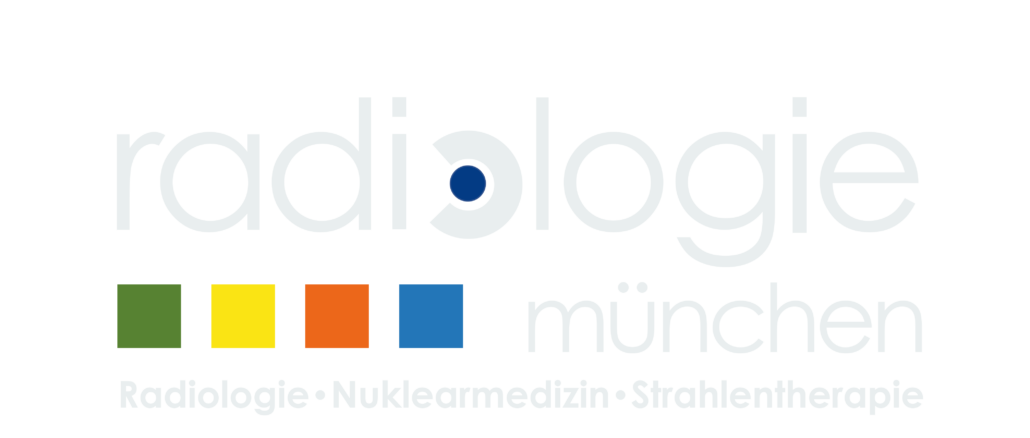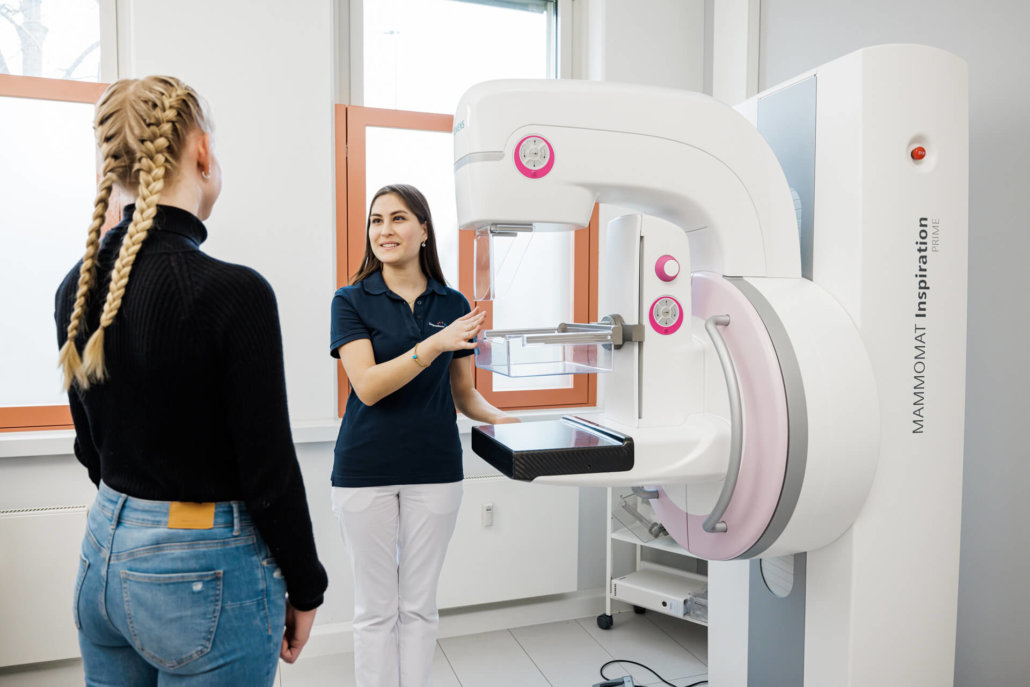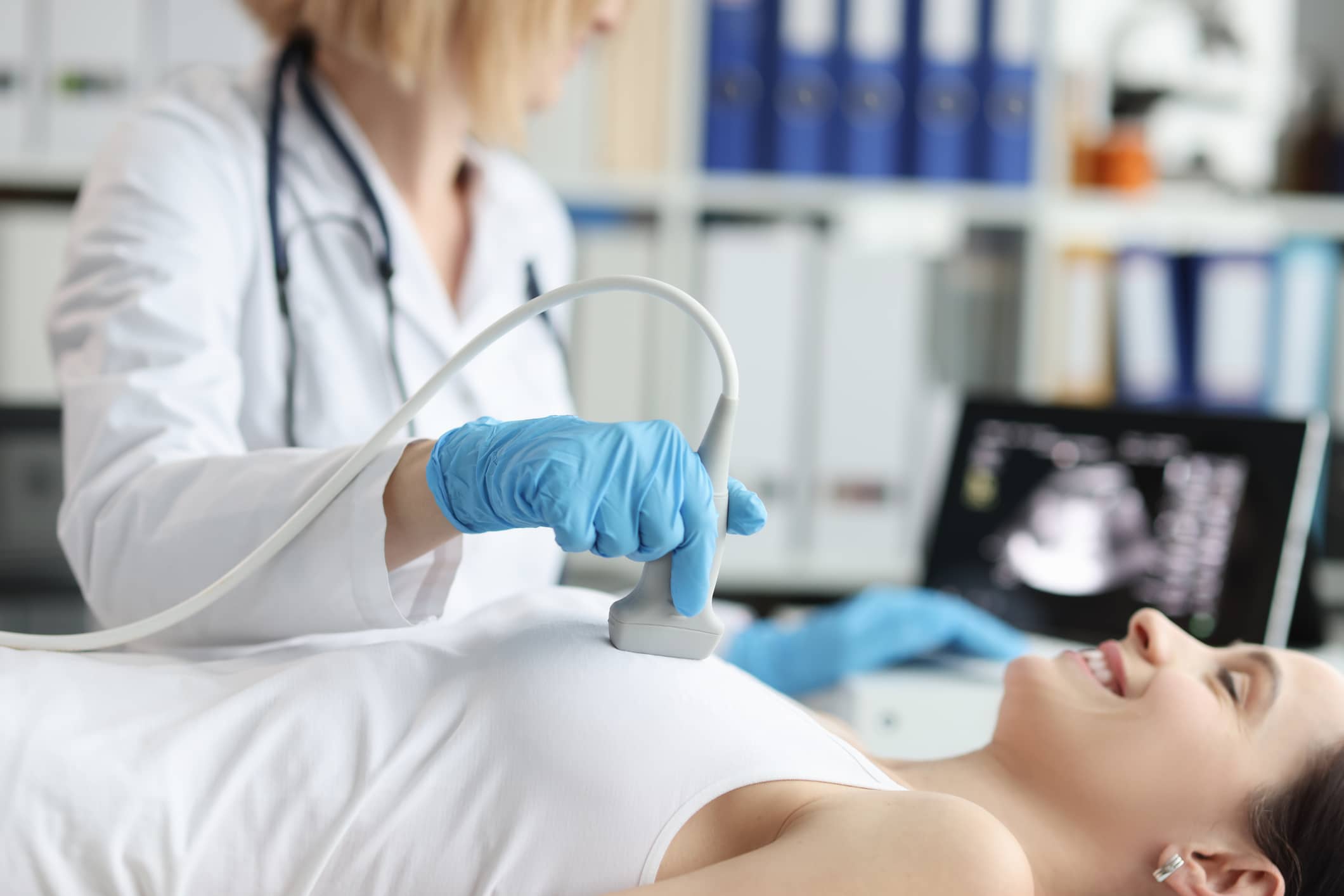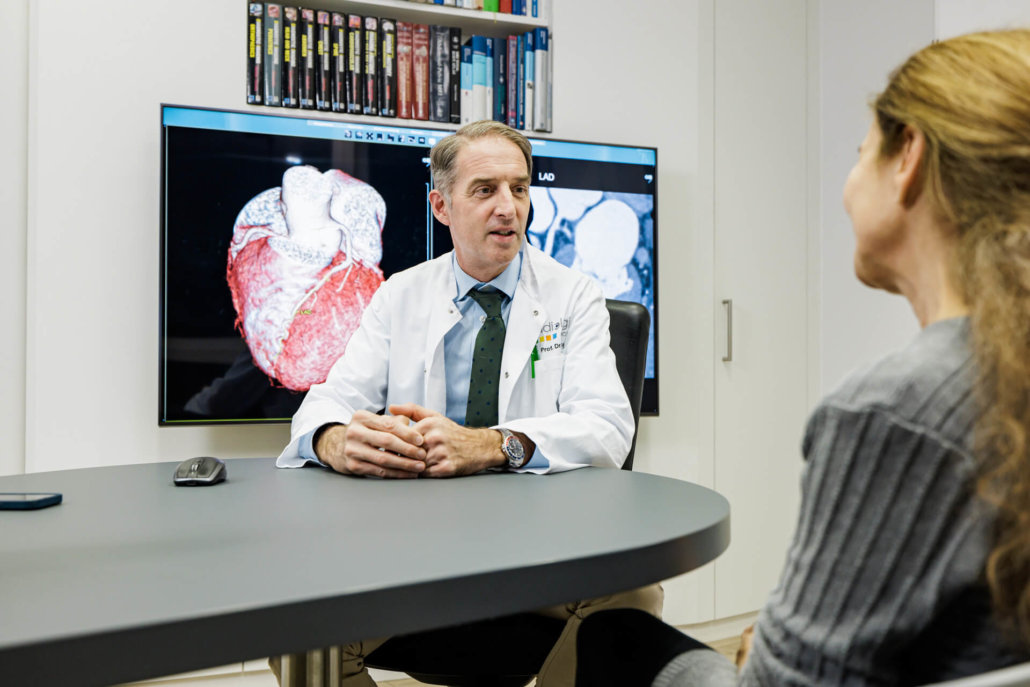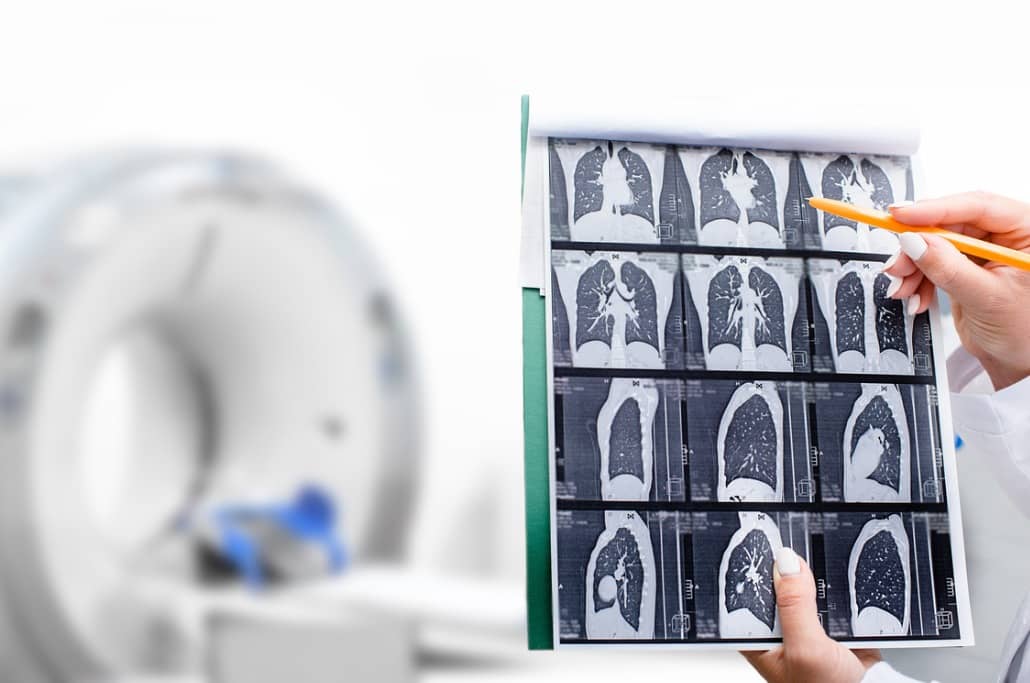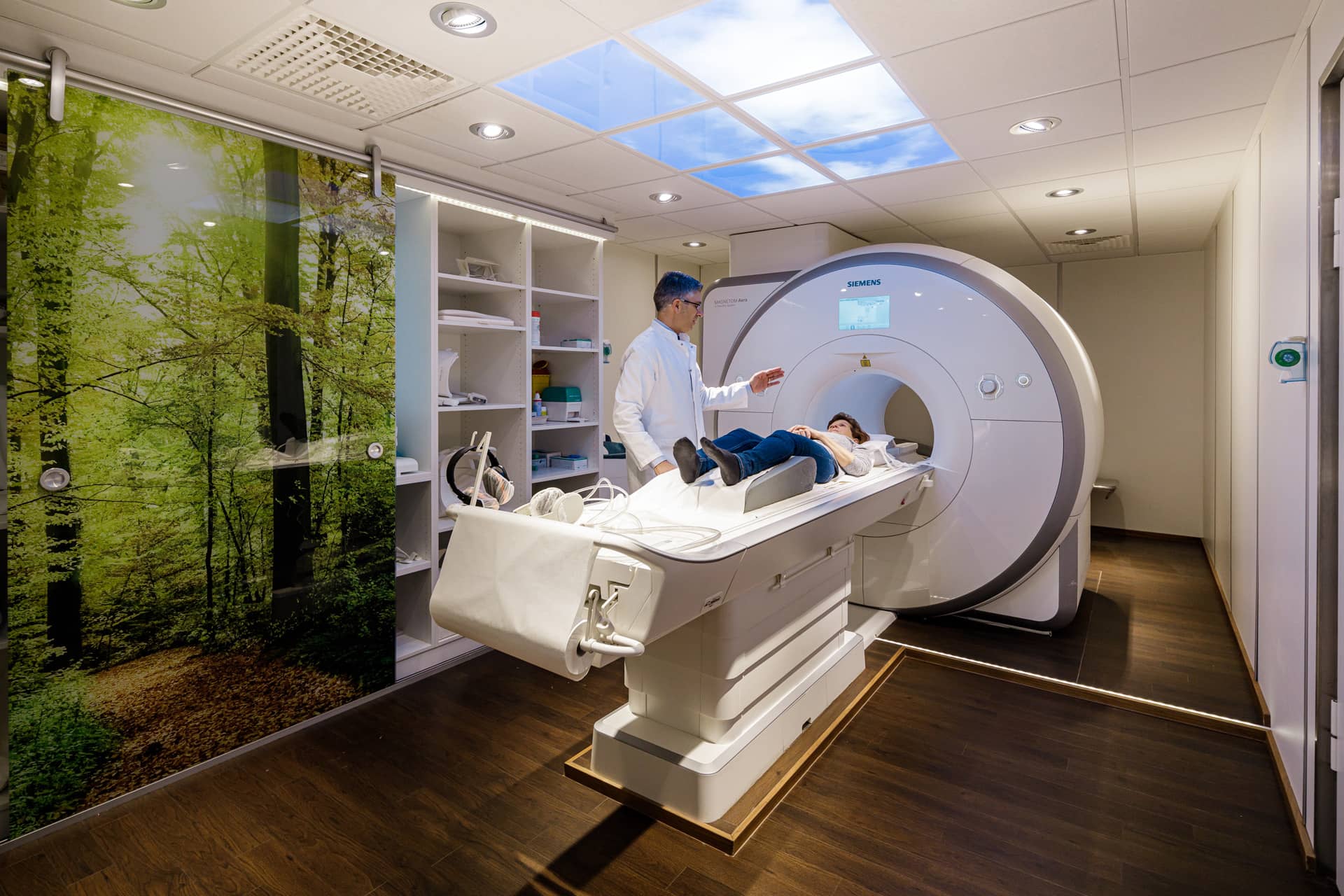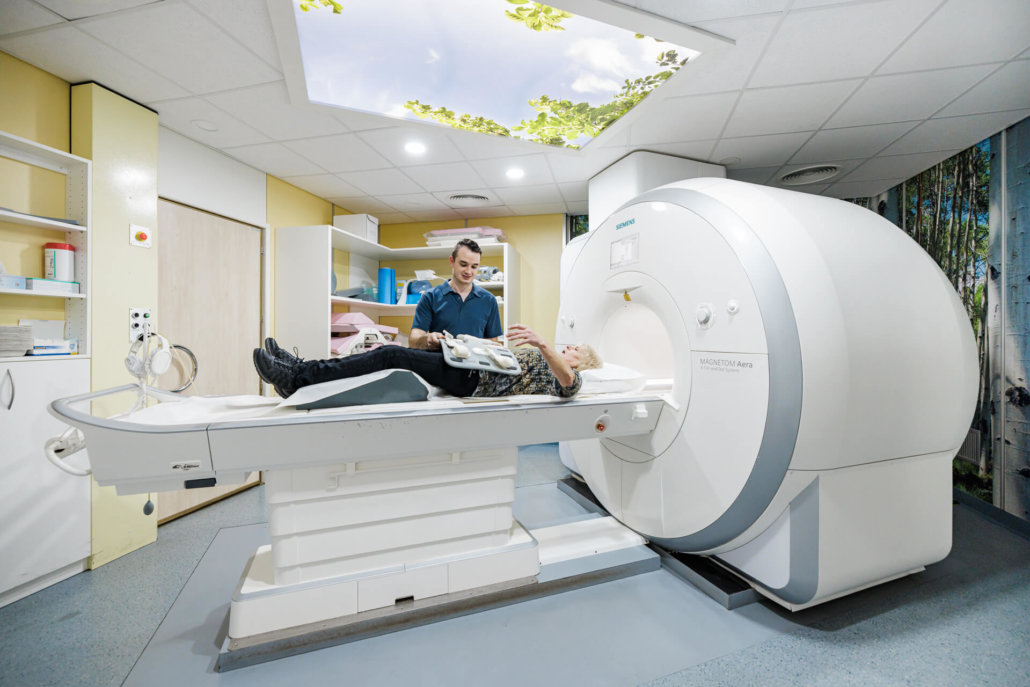Precautionary
investigations
in Munich
Heart problems
Problems with the lungs
Mamma-
Diagnostics
Problems with the intestine
Full body-
MRI
A wide range of preventive examinations in Munich
Screening – Early detection of tumor cells or risk assessment of Alzheimer’s disease, for example, is part of the central range of services offered by our group of practices. Radiologie München offers many possibilities to secure your health or to detect possible strains on your body as early as possible with state-of-the-art means. Just ask our specialists!

Why should you go for preventive care?
Regular preventive care can prevent diseases
Regular screening can prevent the likelihood of certain diseases occurring. As part of preventive care, physical risk factors and habits of the patient are identified and diagnosed. These include genetic disposition, i.e. hereditary predispositions.
By detecting and determining inherited diseases at an early stage, they can be treated as quickly and efficiently as possible. In some cases, even the onset of the disease can be delayed or prevented.
In addition, bad lifestyle habits such as alcohol, smoking and an unhealthy diet can also promote certain diseases. If these risk factors are known, the doctor and the patient can work together to develop strategies to prevent possible secondary diseases.
Regular screening can detect diseases at an early stage
Regular screening can detect diseases at an early stage and thus increase the chances of treatment. Many diseases initially start asymptomatically. The person does not feel pain, nor is the quality of life impaired. It is only as the disease progresses that the person becomes aware of the symptoms and has them examined.
Serious diseases (such as cancer) may have settled or even spread in the body by this time. In the case of cancer, the later the cancer is diagnosed and the later the therapy is started, the lower the success of the treatment and thus the lower the chances of recovery.
The situation is similar for chronic diseases. The initially acute inflammation and pain usually do not cause any difficulties. However, if these remain unnoticed and untreated over a long period of time, these diseases can become chronic. Their treatment is more extensive and complex.
Regular screenings can detect these conditions at an early stage so that the correct diagnosis can be made and proper treatment can be started early.
What diseases can be detected by screening?
Radiologie München offers a range of preventive examinations. The range of services includes, in particular, vascular and tumor diseases, so that rapid and efficient treatment can be initiated through early detection of serious diseases.
The focus of the examination is on the assessment of vessels and organs, joints and bones, as well as cancer screening. We offer the following services:
Vessels & Organs
Cardiovascular check
Heart attack prevention
Alzheimer’s risk diagnostics
Joints & Bones
Osteoporosis screening
Pelvic leg screening
Back pain therapy
Joint pain therapy
Cancer prevention
Breast cancer screening
Prostate Cancer Screening
Lung cancer screening
Colon cancer screening
Who is eligible for screening?
Early detection is useful for every person for the reasons mentioned above. The Federal Ministry of Health has a state-organized screening program that enables its citizens to detect serious diseases early and have them treated with the help of certain screening examinations. Individual screenings are based on the age and gender of the individual and are recommended at specific intervals:
If you are over 35 years old:
Every 2 years – examination of the body for skin cancer.
Every 3 years – examination for kidney and cardiovascular diseases.
If you are over 50 years old:
Annually – examination for colorectal cancer
If you are over 30 years old:
Annually – examination for breast cancer
If you are over 50 years old:
Every 2 years – Mammography screening
If you are over 45 years old:
Annually – examination for genital and prostate cancer.
Other screenings are not recommended until a certain age. Early detection of these diseases is based on the appearance of the first symptoms and the reasonable suspicion of the attending physician.
A wide range of preventive examinations are reimbursed by health insurance companies for persons with statutory and private insurance above a certain age. Some services, on the other hand, are only covered for privately insured patients or they must be paid for by the patient. Radiologie München and your health insurance company will be happy to provide you with information on this topic. It is also important that you contact your health insurance company to clarify the individual case.
What is the procedure for a screening?
The scope and procedure of the screening depends on which part of the body is being examined. Age also plays a role, as in some cases the examination is less extensive in younger patients than in older ones. For example, it is usually sufficient to assess the risk of breast cancer in younger women with the help of an ultrasound examination, while a mammography or MRI scan is recommended for older women from around 50 years of age.
The screening is performed on an outpatient basis. Depending on the area of examination, an ultrasound, X-ray or MRI or CT scan is often performed. Radiologie München offers ideal conditions for MRI at many of our locations. Our modern examination equipment offers the greatest possible diagnostic certainty due to its high-resolution images. Our team of specialised doctors and medical-technical assistants will accompany you through the entire examination process and will be happy to answer your questions at any time.
Preliminary examinations for heart problems
Different precautionary examinations are available for the heart and coronaries. Our specialists can draw on the technical possibilities of both computed tomography and MRI. This allows a wide range of potential problems to be identified at an early stage.
Precaution for lung problems
Smokers have a greatly increased risk of developing lung cancer. Approximately 85% of sufferers are heavy smokers. Early detection of this disease is possible with low-dose computed tomography. Large studies (N Engl J Med 2011; 365:395-409) have shown that not only can the disease be detected earlier and treated more gently as part of such early detection, but that lung cancer mortality is significantly reduced.
In Germany, a screening program similar to mammography is still missing in the statutory insurance system. Nevertheless, the use of low-dose CT in smokers for early detection is justified and reasonable. Contrast medium is not necessary for this examination, and no other preparation is required.
Professional societies therefore recommend “screening,” that is, annual checks, for smokers between 55 and 80 years of age with 30 “pack years” (packs of cigarettes per day x years of use). In addition to qualified and experienced radiologists and modern computer tomographs with appropriately optimized examination protocols, the German Society of Pneumology and the German Radiological Society require that the decision on further measures be made in an interdisciplinary consultation between radiologists, pneumologists, thoracic surgeons and, if necessary, pathologists, ideally in a certified lung cancer center. This is ensured by close cooperation with the corresponding departments at our hospital sites at the Martha Maria in Solln and the Rotkreuzkrankenhaus in Nymphenburg.
Assess breast cancer risk
Breast cancer is one of the most common malignant diseases in women. Every tenth woman in Germany is affected, most of them after the age of 50. Modern and comprehensive diagnostics significantly increase the cure rate. Breast diagnostics deals with the detection and differentiation of diseases of the female breast. The focus is on early detection, differential and extension diagnosis as accurately as possible, and follow-up care for breast cancer.
At Radiologie München, four different procedures are available for breast diagnostics (examination of the breast):
The decisive factors for the selection of the method or methods are above all the patient’s age, medical history and the respective aim of the examination.
Detect colorectal cancer early
For the early detection of colorectal carcinoma (colorectal cancer), conventional colonoscopy (colonoscopy) is recommended in Germany in addition to the Haemoccult test (test for hidden blood in the stool). However, since this procedure requires intensive bowel cleansing and is invasive due to the endoscope used, virtual colonoscopy using computed tomography (CT colonography) or magnetic resonance imaging (MR colonography) has been developed .
According to the current legal situation in Germany, CT colonography may not be used for screening, i.e. for early detection in asymptomatic individuals.
MR colonography, which is performed without ionizing radiation, is offered in our practice in the highest quality. With Prof. Dr. Anno Graser we have one of the leading experts in the field of virtual colonoscopy in our ranks.
Whole-body MRI
Whole-body MRI can provide high-resolution imaging of the entire body, including all organs, the skeletal system, joints and the vascular system. Our modern MRI scanners and individually designed examination protocols allow us to significantly reduce the necessary examination time for this (30-45 minutes). Due to the lack of radiation exposure, this procedure is ideal as a screening examination for the prevention of e.g. cancer or vascular diseases.
The examination can also be used in the evaluation of the course of malignant diseases and to exclude metastases of a confirmed tumor; it has a very high sensitivity in the detection of metastases to the upper abdominal organs, in the area of the lymph nodes, but also to the entire skeletal system. Because magnetic resonance imaging does not use ionising radiation, it is also ideal for young patients.
Another area of application for whole-body MRI is the imaging of inflammatory skeletal diseases such as rheumatoid arthritis. Here, the activity of the inflammation can be recorded very precisely.
